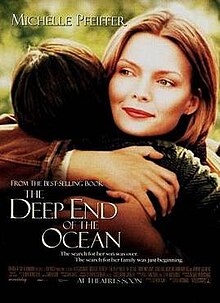
Caryn Elaine Johnson, known professionally as Whoopi Goldberg, is an American actor, comedian, author, and television personality. A recipient of numerous accolades, she is one of 19 entertainers to win the EGOT, which includes an Emmy Award, a Grammy Award, an Academy Award, and a Tony Award. In 2001, she received the Mark Twain Prize for American Humor.
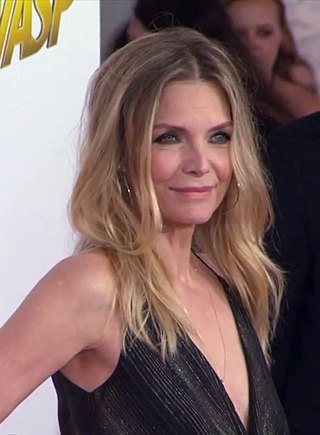
Michelle Marie Pfeiffer is an American actress. Prolific in film for over four decades, she became one of Hollywood's most bankable stars during the 1980s and 1990s, as well as one of the era's defining sex symbols. She is known for pursuing a wide range of characters that span multiple genres, which have earned her various accolades, including a Golden Globe Award and a British Academy Film Award, in addition to nominations for three Academy Awards and a Primetime Emmy Award.

Ghost is a 1990 American supernatural romance film directed by Jerry Zucker from a screenplay by Bruce Joel Rubin, and starring Patrick Swayze, Demi Moore, Whoopi Goldberg, Tony Goldwyn, Vincent Schiavelli, and Rick Aviles. It focuses on Sam Wheat (Swayze), a murdered banker, whose ghost sets out to save his girlfriend, Molly Jensen (Moore), from the person who killed him – through the help of the psychic Oda Mae Brown (Goldberg).
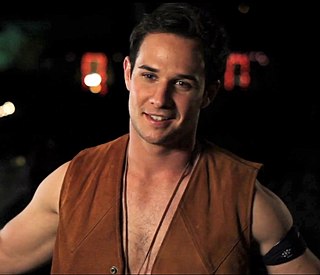
Ryan Earl Merriman is an American actor. He began his career at the age of ten and has appeared in several feature films and television shows. He is best known for a handful of Disney Channel original movies and for portraying Jake Pierce in The Ring Two, Kevin Fischer in Final Destination 3, and Ian Thomas in Pretty Little Liars.

Jonathan Stevens Jackson is an American actor, musician, and author. He is best known for his role as Lucky Spencer in the television soap opera General Hospital, which won him five Daytime Emmy Awards. He is also known for his roles in the films The Deep End of the Ocean (1999), Tuck Everlasting (2002), Dirty Dancing: Havana Nights (2004), and Riding the Bullet (2004), as well as the television series Nashville (2012–2018), for which he received a Critics' Choice Television Award nomination.
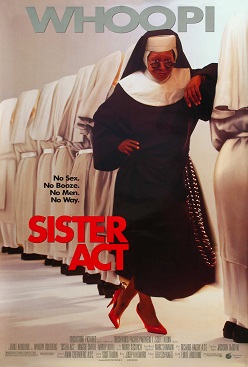
Sister Act is a 1992 American musical crime comedy film directed by Emile Ardolino and written by Paul Rudnick. It stars Whoopi Goldberg as a lounge singer forced to join a convent after being placed in a witness protection program. It also features Maggie Smith, Kathy Najimy, Wendy Makkena, Mary Wickes, and Harvey Keitel.
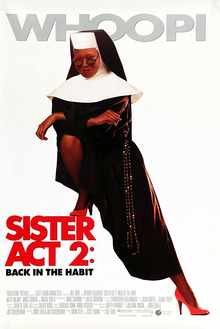
Sister Act 2: Back in the Habit is a 1993 American musical comedy film, directed by Bill Duke, and released by Touchstone Pictures. It is the sequel to the 1992 film Sister Act, and is loosely based on the life of Crenshaw High School choir instructor Iris Stevenson. The story sees Whoopi Goldberg reprising her role as Deloris van Cartier, as she finds herself coming to the aid of her nun friends who need her help to save her old school. Maggie Smith, Kathy Najimy, Wendy Makkena, and Mary Wickes also reprised their roles in the sequel.
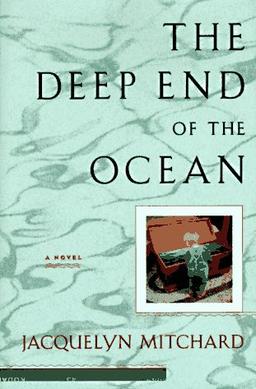
The Deep End of the Ocean is a best-selling novel by Jacquelyn Mitchard, released in 1996. It is about an American middle class, suburban family that is torn apart when the youngest son is kidnapped and raised by a mentally ill woman, until he appears at the front doorstep of his real mother and asks if he can mow the lawn.
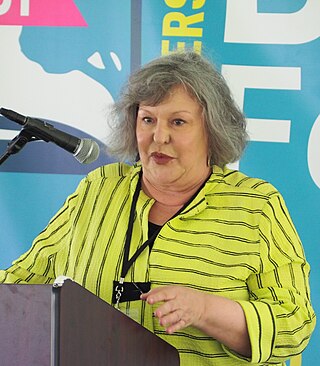
Jacquelyn Mitchard is an American journalist and author. She is the author of the best-selling novel The Deep End of the Ocean, which was the first selection for Oprah's Book Club, on September 17, 1996. Other books by Mitchard include The Breakdown Lane, Twelve Times Blessed, Christmas, Present, A Theory of Relativity, The Most Wanted, Cage of Stars, No Time to Wave Goodbye, Second Nature - A Love Story, and Still Summer.
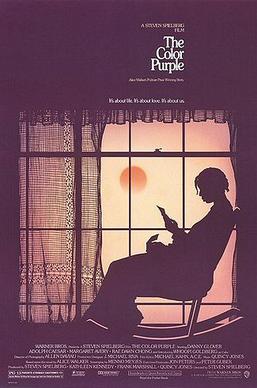
The Color Purple is a 1985 American epic coming-of-age period drama film directed by Steven Spielberg and written by Menno Meyjes. It is based on the Pulitzer Prize–winning 1982 novel of the same name by Alice Walker and was Spielberg's eighth film as a director, marking a turning point in his career as it was a departure from the summer blockbusters for which he had become known. It was also the first feature film directed by Spielberg for which John Williams did not compose the music, instead featuring a score by Quincy Jones, who also produced. The film stars Whoopi Goldberg in her breakthrough role, with Danny Glover, Oprah Winfrey, Margaret Avery, and Adolph Caesar.

The Story of Us is a 1999 American romantic comedy-drama film directed by Rob Reiner, and starring Bruce Willis and Michelle Pfeiffer as a couple married for 15 years.

Burglar is a 1987 heist comedy film directed by Hugh Wilson and distributed by Warner Bros.. The film stars Whoopi Goldberg and Bobcat Goldthwait.
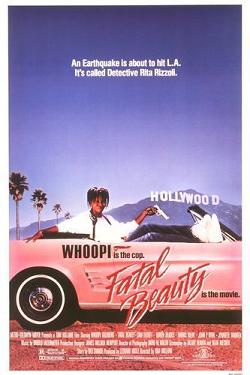
Fatal Beauty is a 1987 American action comedy thriller film directed by Tom Holland, and starring Whoopi Goldberg as Detective Rita Rizzoli, and Sam Elliott as Mike Marshak. The screenplay was written by Hilary Henkin and Dean Riesner. The original music score was composed by Harold Faltermeyer. The film was marketed with the tagline "An earthquake is about to hit L.A. It's called Detective Rita Rizzoli."
K. K. Dodds is an American actress best known for playing Susan Hollander on the Fox drama Prison Break and for her roles in the films Soldier and A Life Less Ordinary.

The Subject Was Roses is a 1968 American Metrocolor drama film directed by Ulu Grosbard. The screenplay by Frank D. Gilroy is based on his 1964 Pulitzer Prize-winning play of the same title.
Israel "Ulu" Grosbard was a Belgian-born, naturalized American theater and film director and film producer.
Rose Gregorio was an American actress. She began her career appearing mostly in theatre in Chicago and New York City during the 1950s and 1960s. During the 1970s she became more active in television and film, appearing mostly in supporting roles.
The YoungStar Awards, presented by The Hollywood Reporter, honored young American actors and actresses from ages 6–18 in their work in film, television, stage and music. Winners were chosen via a poll of 3,500 entertainment industry insiders who read The Hollywood Reporter. The awards ceremony was held from 1995 until 2000; there was no ceremony in 1996.
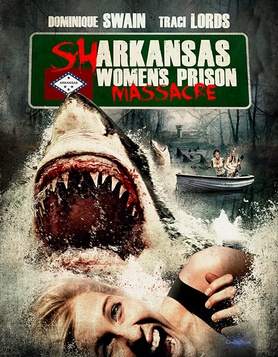
Sharkansas Women's Prison Massacre is a 2016 American science fiction action horror film directed by Jim Wynorski and starring Dominique Swain and Traci Lords. It was released direct-to-DVD in the U.S. on May 3, 2016.

Selina Kyle, also known as Catwoman, is a character portrayed by Michelle Pfeiffer in Tim Burton's 1992 superhero film Batman Returns. Based on the DC Comics character of the same name, she is initially depicted as the meek assistant and secretary of wealthy industrialist Max Shreck, who pushes her out of a window when she uncovers his corruption. Selina survives the fall and swears revenge against Shreck as Catwoman, which brings her into conflict with Batman. She forms an alliance with the Penguin to disgrace Batman while beginning to date Bruce Wayne, unaware that he is Batman's alter ego. After discovering each other's secret identities, Selina ultimately rejects Bruce's plea to abandon her vengeance and kills Shreck before vanishing into the night.
